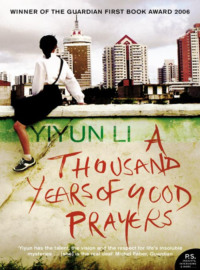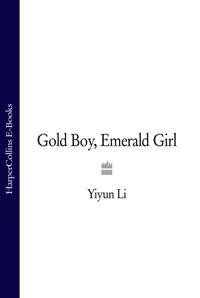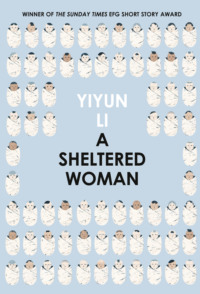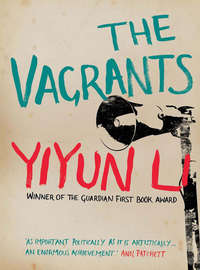
Полная версия
Kinder Than Solitude
How long has he known, she asked, and he said four weeks. Four weeks, Moran said, feeling her anger swelling—but before she could launch into a tirade, Josef said that the prognosis had not been dire. Survived by a caring ex-wife, his obituary would read, Josef joked when silence set in.
How long would he last, Moran wondered. How long does anyone, or anything, last? A marriage that had begun with enough affection could have gone right, love teased out with tenderness where passion was wanting, childlessness never a disappointment, as it was not a result of the age difference between Josef and Moran but of her adamant disinterest in motherhood. On holidays, Josef’s children and grandchildren would visit, and friends—men and women twenty or thirty years Moran’s senior, who had been Alena and Josef’s friends and who had taken care of Josef after Alena’s accident—would continue their tradition of seasonal get-togethers, which they’d begun long before Moran had existed for any of them.
A caring ex-wife must be the best consolation prize, Moran thought, for a man to have, or for a woman to be called. Even if Josef’s children would oblige him, she would look like an awkward extra in an otherwise perfectly staged story in his obituary. For years Moran had been a regular visitor to a website that compiled obituaries from around the country. She never tired of the gently touched-up summaries of strangers’ lives. Without her intrusion, Josef’s life would be one of those perfect tales of love and loss: a solid upbringing in a solid midwestern town; a happy marriage to a childhood sweetheart ended abruptly by a careless driver; a beloved father and grandfather to four children and eleven grandchildren; a longtime member of the local choir, an avid gardener, a generous friend, a good man.
“I’m coming to see you,” she said, deciding already that she would book the flights and the stay at her usual B&B after the phone call.
“But it’s not June yet,” Josef said.
During the past eleven years, Moran had visited Josef every June on his birthday, a lunch meeting rather than a dinner, because birthday dinners belonged to families, and he had children and grandchildren to celebrate with. He acted grateful for his birthday lunches, as though he did not know that they were for her sake more than for his.
June was a long while away, and who knew if he would still be here when June came again? The same thought must have occurred to Josef, and he reassured Moran that the prognosis was good: the doctors thought there was still time, at least a couple years, depending on how the treatments went.
Why, then, was he telling her at all; why not wait until they saw each other next June and spare her seven months of suspense? But she knew she was being unfair. He must have waited to break the news to other people, too—she should not expect to be among those called right away. “A plan should always be amendable,” she said. “Unless it’s bad timing for me to come?”
Josef said it was not bad timing at all. The hesitation in his voice—imagined or real, she could not tell—stung Moran: in death as in life she had no claim on anything. In a lighter tone she told him not to worry, as she would be out of his hair before Thanksgiving. She would book her return ticket for Wednesday, she said; other than Rachel, his children and their families would probably come and join him on that day.
“You think I’m worried about your staying through the holiday?”
“I don’t want to impose,” she said. Her decision to visit, she knew, was already an imposition, but Josef was too kind to point that out. Her inconsistency, which she allowed only him to see, was in itself a love she had not given anyone else, though it was not the kind of love to have done him, or anyone else for that matter, any good.
“Ever so like you,” Josef sighed. “To worry about things you don’t need to.”
“You’re bound to people,” Moran said, though what she meant was that his time was bound to those around him. To think a person bound in any way—by blood, by legal documents of marriage or employment, by unsigned commitments to friends and neighbors and fellow human beings—is an illusion, though time is a different matter. In making commitments to others, what one really commits is one’s time: a meal, a weekend, a marriage as long as it lasts, a final moment by the deathbed; to make the mistake of going beyond that, to commit one’s true self—everyone has a story or two about that hard-learned lesson of giving more than is asked. “I can’t just come and ask to be among them.”
“Why not, Moran?”
“I thought you would have known by now that I don’t belong,” Moran said. That she had not belonged and could not blend in were the reasons she had given when she’d asked for a divorce. Blend in—what an absurd notion, as though a marriage ought to work like the hand of a masterful craftsman, slowly softening one’s edges and changing one’s hues until one becomes perfectly invisible. Josef, disappointed then, had nevertheless articulated that his conception of their marriage had never involved her adapting herself to his world.
But to mention his world, Moran knew, was to gain an unfair advantage. Having come into the marriage by herself—she had cited visa difficulties for her parents’ absence at the wedding—she had only herself to account for, while Josef had his family, which in the end had been used as part of her excuse to exit the marriage.
Of course, Josef said now, he understood her concern. She wished he would not say that; she wished he would be less accommodating. She would get in touch once she had the flights booked, she said. He said okay, though his voice sounded defeated. Why couldn’t she be kinder to him?
After a moment of hesitation, Josef said there was one more thing she needed to know before she came: these days Rachel drove him around.
During her previous visits, Moran had not seen Rachel, and she’d wondered if Josef concealed their annual lunches from his children and friends. In their minds, she had been the calculating one: marrying Josef for security when it was needed for a new immigrant, divorcing him the moment she got her citizenship and a job offer. She imagined his having to plead with Rachel to drive him to meet Moran, guilty as a man caught cheating yet stubborn in his helplessness. “I’ll rent a car,” she said. “That way I can drive you anytime, if you need.”
Josef thanked her. “Till then, Moran?” he said.
A dread of the immediate silence made Moran breathe in sharply. “Josef,” she said, feeling, against all reason, widowed.
“Yes?”
She wanted to say that someone she knew from a long time ago had died, but it was selfish to unburden the news onto a dying man. She wanted to beg him not to let go of his hope, even though, had she been in his position, she would have easily chosen resignation. She wanted to apologize for things she had not done for him, and things she had done wrongly to him. But now, as he waited patiently on the phone, she knew that these words, true to her heart, would sound melodramatic once said. “Are you all right?” Josef asked gently.
“Of course I’m all right,” she said, and added that if she had any talent worth boasting about, it was to always be all right.
Josef ignored the meanness—to herself more than to him—in her words. He had never been a fan of sarcasm. “Is there something upsetting you, Moran?”
Was he asking if her heart had been broken by another man? He would, of course, offer solace, as he had once consoled Rachel when she had broken up with her college boyfriend—but how could Moran explain to him that what was broken was not her heart but her faith in solitude? When she had asked for the divorce, she had told him that only a small part of his life would go to waste. There were his children and grandchildren, his friends and his house, all of which had crossed paths with her minimally, all of which would remain his, as they had never been hers. Considering how excruciatingly long a life was, she had said, the five years they had spent together were no more than a detour. What she had not told him was that, giving up the marriage, she had decided to live in a more limited way: all she wanted was to have her mind and her heart uncluttered, and with discipline she had since maintained a savage routine that cleansed her life to sterility. But today, two calls had come, announcing one death and another impending, and what filled the uncluttered space but pain that the most stringent cleansing would not alleviate? She missed Josef; she missed people.
“What’s the matter, Moran?”
Nothing was the matter, she reassured him. It had perhaps dawned on him over the years that she was no longer looking for a companion, though she could tell that he continued to hope otherwise, counting on the day she could no longer travel for his birthday because she had someone else’s feelings to consider. “I’m sorry I am nasty to you,” she said.
“You surely aren’t,” Josef said.
“Let’s not argue over this,” she said, though who else would she argue with? She told him to take care of himself, and she would see him soon. When the call was disconnected, she felt pressed in, as though his voice had left a crack through which loneliness flooded into her room. She remembered a story she had read when young, about a Dutch boy finding a hole in a dam, and putting his finger into the hole to stop the ocean. In the story, the sea, which had once been a frolicking friend for the boy, murmured sinister seduction into his ear as the numbness from his finger expanded to his arm and then to his whole body. Why not, Moran said to the boy and to herself, let go of your heroic resistance and see what happens next?
But nothing happened. The silence, unlike the murmuring sea, did not engulf and drown her, and the woman in Modigliani’s painting watched on, merciful in her insouciance.
Moran put on her coat and then wound a scarf around her neck, and a minute later emerged into the street. Dusk was falling, the wind picking up, sweeping leaves along the sidewalk. Lamps lit up people’s windows, and here and there could be heard the opening and closing of a mailbox, the sound of a car engine coming to a full rest after the rumbling of a garage door, the buzzing of an erratic street lamp. The sound track of a suburban evening could be as deceivingly idyllic as that of a mountain village in Switzerland: the cars driven home were as eager to reach the end of their journey as were the sheep and cows trekking homeward; the barks here and there of dogs that had spent the day alone and now heard their owners’ approaching steps were as exuberant as those of the sheepdogs who, after a day of working, smelled warm fried food upon nearing the cottages. Behind each door, beyond the gazes of strangers curious or insensitive, another day’s happiness and unhappiness converged, adding or subtracting, modifying or concealing, leading or misleading those susceptible hearts to a place different, however imperceptibly, from yesterday’s.
Once upon a time, cooking in the kitchen where for years Alena had made meals for her husband and their four children, listening for Josef’s car but not really waiting for him, Moran had made up a life for herself apart from Josef, as she later would make up lives for Grazia and the cobbler and the heartbroken shepherd. It was not disappointment in her marriage, as Josef had thought, that had led her to do that, but her belief in the imperativeness of not living fully in any given moment. Time is the flimsiest surface; to believe in the solidity of one moment till one’s foot touches the next moment, equally trustworthy, is like dream-walking while expecting the world to rearrange itself into a fairy tale path. Nothing destroys a livable life more completely than unfounded hope.
The life imagined in the kitchen of Josef’s house was not far from what Moran conducted now: loneliness and solitude had been rehearsed while she chopped vegetables. It had been her only defense against having her heart moved to a strange place, by Josef, by their marriage, by time. Sometimes when she did not hear the garage door, or her mind was lost in the hissing of cooking oil under a closed lid, she would be startled by the sudden reappearance of Josef. Who are you, and why are you here in my life, she had half-expected him to ask her, half-wondering whether he, catching in her eyes a momentary hostility, had been waiting for her to ask him the same question.
In her adult life, Moran believed, she had not failed to foresee what was going to happen: her migration to America, her marriage to and later divorce from Josef. People would say that she was simply living toward what she thought she had seen, but that was not true. One could have wrong visions, one could have vain hopes, but deceiving oneself is more difficult than deceiving the world. Impossible, in Moran’s case.
The odd thing, though, was that her clarity of vision did not apply to the past. Early in their relationship Josef had been curious about her life in China. She had been unable to share as much as he had wished for, and he had felt hurt, or at least saddened, by her evasiveness. But how does one share the memories of a place without placing oneself in it? Certainly there were moments that would stay alive for as long as she did. Her mother, before pulling Moran out of her fortress of quilts and blankets in the winter mornings, had rubbed and warmed up her own hands while singing a song advocating early rising for a healthier life. Her father’s bicycle bell, a rusty one that sounded as though it had caught a perennial cold, had been stolen one day; who, the family had wondered, wanted an old bell while there were plenty of shiny ones that rang clear and loud? Neighbors’ faces came to her, those who had died appearing vividly alive, those who had aged remaining young. In first grade, the district clinic had come to check the blood counts of the schoolchildren; she’d told Boyang to massage his earlobe so his blood would flow better, and he, trusting her as ever, was yelled at by the nurse afterward, because his red earlobe did not stop bleeding after it was punched by a thin needle.
But how could anyone, Moran wondered now, warrant the trustworthiness of one’s memories? The certainty with which her parents spoke of Ruyu’s culpability was the same certainty with which they believed in their own daughter’s innocence. Those seeking sanctuary in misremembering did not separate what had happened from what could have happened.
Moran had not believed—still could not believe—that Ruyu had meant to do anyone harm. A murder needed motivation, a plot, or else it needed a moment of despair and insanity, as, in her own imagination, the young shepherd had experienced when he drowned his own love along with an innocent child. Moran had not known Ruyu well when they were young; even in retrospect she could not say that she understood Ruyu: she was one of those who defied being known. She had shown no remorse or concern when Shaoai was found poisoned. Had that made Ruyu more culpable than others? But the same could be said of Moran’s own divorce: many among Josef’s friends and family believed her manipulative, saying she’d got what she wanted from the marriage and discarded it the moment she had accomplished her goal. The excuse she had given Josef was halfhearted, the reticence she had maintained in front of others defiant, which made her guiltier than if she had asked for forgiveness.
Конец ознакомительного фрагмента.
Текст предоставлен ООО «ЛитРес».
Прочитайте эту книгу целиком, купив полную легальную версию на ЛитРес.
Безопасно оплатить книгу можно банковской картой Visa, MasterCard, Maestro, со счета мобильного телефона, с платежного терминала, в салоне МТС или Связной, через PayPal, WebMoney, Яндекс.Деньги, QIWI Кошелек, бонусными картами или другим удобным Вам способом.






